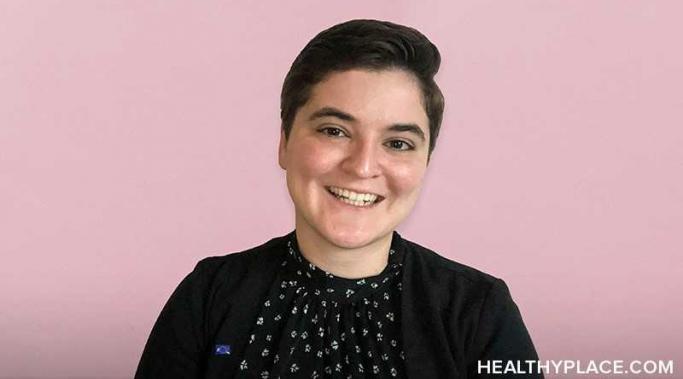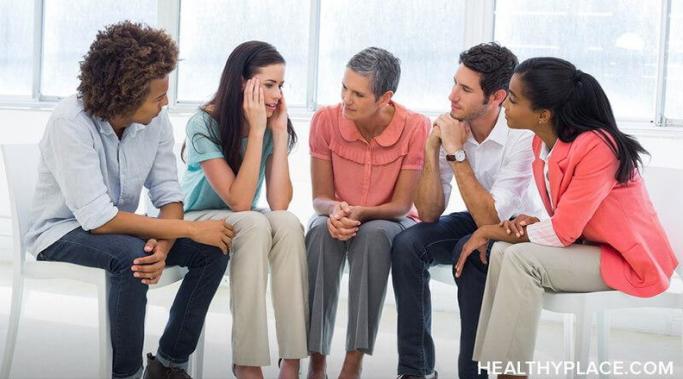Blogs
My name is Bethany Avery, and I suffer from complex posttraumatic stress disorder (C-PTSD). I started showing symptoms of C-PTSD when I was 16 years old, and I first sought treatment for my disorder when I was in college. Finding solid footing in the shaky world that C-PTSD creates has been a tough but important battle, and I’m excited to share my story and coping methods as part of the "Trauma! A PTSD Blog" at HealthyPlace.
A diagnosis of mental illness can be shocking for both the patient and their loved ones and, unfortunately, lead to a lack of support. Prior to my husband’s schizophrenia diagnosis, I held a skewed view of mental illness believed the stigma surrounding it. After his diagnosis, I repeatedly asked myself why it couldn’t be something more seemingly straightforward, such as anxiety or depression. I learned to accept his illness over time, but it is difficult when others are not able to do the same. The lack of support we've been shown in our struggle hurts.
A quick story about toxic people and self-esteem: Imagine you decide to plant a tiny sprout in your garden. When it flourishes, it will bring you deep joy. But first, it needs your focus and care to grow. Those who come into your garden and see your sprout give you support and space, encouraging your progress. But occasionally, a different kind of person comes into your garden. Knowingly or unknowingly, they march across the soil, step on your plants, and in the worst-case scenario, grind your tiny sprout into nothing.
In September and then again in January, I increased my antipsychotic for schizoaffective disorder even though I knew it would probably cause weight gain. And, it did. But I am much better off now mentally than I was before I made the changes, so I don’t want to decrease the schizoaffective medication just to lose weight.
Can you really reduce social anxiety with mindfulness meditation? Social anxiety can be life-limiting, its negative effects filling people with seemingly constant fear and dread. You can indeed reduce social anxiety with mindfulness; however, it's a persistent and gradual process of meeting the root of this type of anxiety and creating a sense of calm rather than agitation. Let's look at how this happens and gain a mindfulness meditation to help reduce social anxiety.
Having depression can sometimes lead to developing negative habits as we try to cope. Often things that aren't necessarily wise or healthy feel good at the moment. Sometimes it's easier to do what is comfortable rather than that which requires work and sacrifice. Also, depression drains us of our energy, thus making it difficult to take even that first step towards building healthier habits. Does this mean we're stuck? No, we're not; we just need to identify our negative habits and work toward changing them into more positive coping skills.
Setting healthy boundaries now that my abusive relationship has ended is one of the most difficult things I’ve had to figure out recently.
Attention-deficit/hyperactivity disorder (ADHD) can often lead to boredom. It can also result in discovering exciting methods to counter that discontent. In certain ways, I get bored less often than friends who do not have the condition, and what someone considers uninteresting is entirely subjective. Still, it appears I am not alone when it comes to ADHDers who absolutely despise being bored.
Using mindfulness for self-harm is a dialectical behavior therapy (DBT) skill. Dialectical behavior therapy is an effective type of treatment used for issues of self-harm. Originally developed to treat borderline personality disorder (BPD), it is currently used to treat a variety of mental illnesses such as eating disorders and chronic depression. Dialectical behavior therapy targets emotion dysregulation to help patients cope with the severity of their distress.
The mainstream culture needs more advocates for eating disorder awareness—and as someone in pursuit of healing for your own life, you could become an advocate.










I believe she will only be able to rid herself of her demons, and hopefully her BPD as well, when she's ready to confront the abuse of her father. If she can put the blame where it belongs, she may stop projecting that victim/perpetrator cycle on the present men in her life. These demons are a metaphor for the purgatory she has created for herself. That reality has consequences in the real world, but it need not be real in the tangible sense. Exorcising her demons will require the expenditure of real physical energy and probably the destruction of aspects of her personality. If this ever happens, and it's possible but not probable, then these demons will evaporate. They are only as real as one's personality is real. In short, reality is not the question, it's what you make of the things you feel to be real.